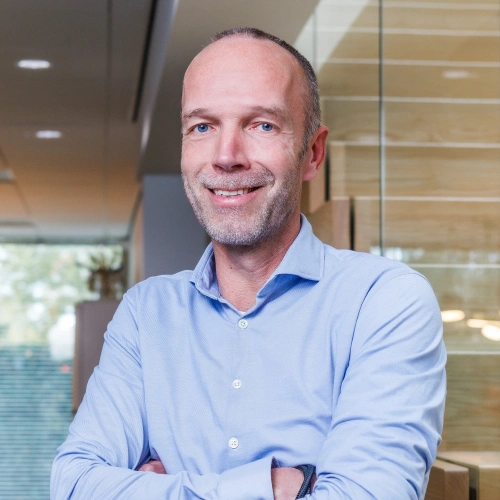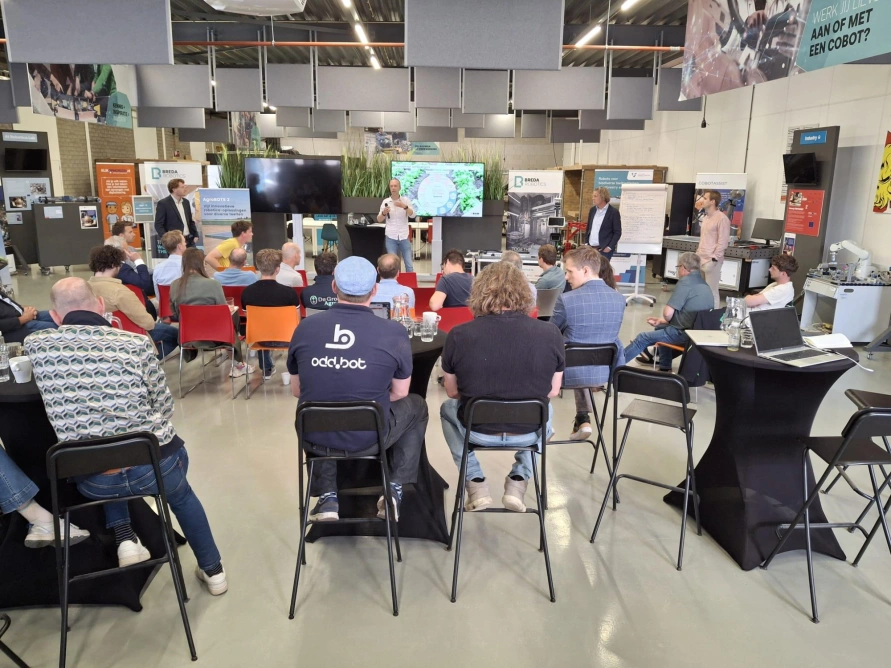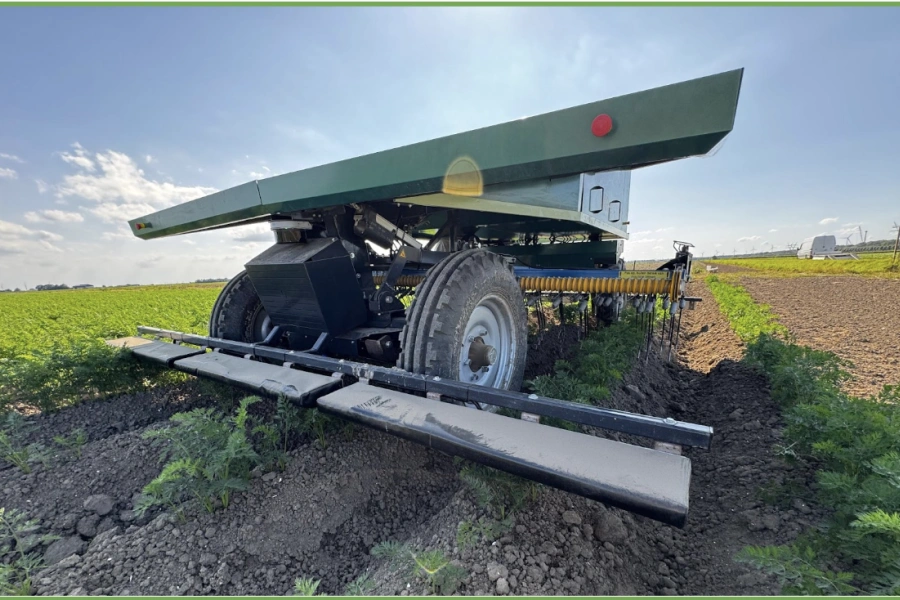The Netherlands is an agricultural country. Dutch growers are globally renowned as the most productive in the world, thanks to efficient and advanced agricultural practices. A leading position to cherish. But to stay ahead, we must work towards a more sustainable agricultural system, where weeding robots may play a prominent role. Brabantse Ontwikkelings Maatschappij (BOM) is exploring how we are going to achieve that, together with stakeholders.
Why? Because the use of crop protection agents - which can sometimes be harmful to humans, animals, and the environment - will have to be reduced. And because plant-based eating is an essential component of a sustainable food system and will therefore constitute an increasingly larger part of our diet.
Alternatives must be found. One such alternative for combating weeds is the weeding robot.
Learn more

Weeding robots are not a vision for the future. They are already here. They are just being used sparingly in the Netherlands. “Introducing the weed robot remains tomorrow's urgency for many stakeholders,” says Freek van den Heuvel, program manager at BOM. “But if tomorrow becomes today, you're too late. That's the challenge we need to solve. We need to create a breakthrough somewhere.”
Financial risks
Van den Heuvel made this statement during the event Weeding as a Service that he organized on behalf of BOM. Among others, growers, agricultural machinery manufacturers, contractors, and robot builders gathered on Wednesday, May 21, at Breda Robotics to discuss the future of weed robots. And to answer that one crucial question: why are these robots not yet commonplace among Dutch growers?
The main barrier quickly surfaced: who dares to take the (financial) risk, while herbicides remain a proven effective, cheaper, and so far allowed alternative? The problem with this attitude also quickly became evident: those who wait too long to switch to weeding robots will be too late at some point. Tomorrow's urgency needs to become today's urgency.
The urgency was already felt by Thijs van den Berg and Joop Bontje from Roboltics in Breezand (North Holland). They bought the LaserWeeder from the American company Carbon Robotics in 2023. Van den Berg is a lily grower and noted 'that there is a lot of focus on the use of herbicides in lily cultivation.' "We wanted to reduce our use of chemicals. Also because there is scrutiny on lily cultivation. The urgency was high for us."
Shooting weeds with a laser
Their robot shoots lasers at weeds, causing the sap flow to heat up and coagulate. This causes the plant to die. They are now using the LaserWeeder with various growers and cultivators. By optimally deploying the robot as a kind of contractor, an interesting business case has emerged.
Van den Berg and Bontje demonstrated that it is indeed possible. And there is enough room for more weeding robots from the Netherlands, alongside the use of the American LaserWeeder, which is primarily suitable for germinating weeds and less effective against deeply rooted weeds.
However, more is still needed, as revealed during Weeding as a Service. Van den Berg and Bontje did not purchase an American robot for nothing. They chose, in their own words, a proven concept with guaranteed service. They chose certainty.
The first step
Who dares to take that step with Dutch startups that do not yet have many robots in the field? Who will take the first step? A step that is crucial for robot companies to further develop and grow. A step that is needed so that Dutch robot builders can show that they too have a proven effective robot. A robot that offers certainty.
This is precisely the deadlock that the BOM wants to break. In the coming months, Van den Heuvel will engage with stakeholders to discuss various scenarios gathered during the event.
A concrete next step has already taken shape: appointing an independent quartermaster who, on behalf of contractors and growers, initiates the concept of Weeding as a Service – allowing weed robots to make strides as a contractor with various growers.
The quartermaster can facilitate practical experiments and share experiences widely in the sector. He will share the conclusions during a second event on Weeding as a Service later this year, with the aim of a more large-scale application of weed robots. So that the urgency of tomorrow becomes the urgency of today.

